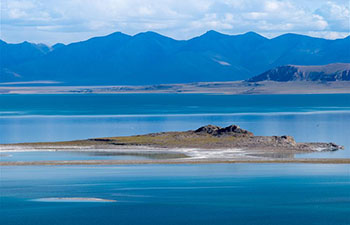GENEVA, Sept. 24 (Xinhua) -- Asia is now the dominant source of worldwide Intellectual Property applications, accounting on average across the various IP rights for over 60 percent of them, World Intellectual Property Organization (WIPO) Director General Francis Gurry said Monday.
He said rapid technological change is driving demand for intellectual property rights and growth in the WIPO global IP systems.
Gurry was speaking at the opening of the 2018 WIPO Assemblies to some to some 1,000 delegates from the organization's member States.
He noted that that IP is increasingly important in policy-making and international trade.
In a written report presented to the assemblies, Gurry said that in 2017, 49.1 percent of all applications came from countries located in Asia, the same as the combined share for Europe (24.9 percent) and North America (24.2 percent).
"If current trends continue, Asia will very soon be the source of more than half of all PCT (Patent Cooperation Treaty) filings," said Gurry.
China, he said, recorded another year of remarkable growth with 13.4 percent more applications in 2017 than in 2016 and moved into the second spot as a source of international patent applications.
Overall, the United States continues to be the top source of applications, followed by China, Japan, Germany and the Republic of Korea.
Intellectual property continues to grow in economic and social importance around the world, said Gurry.
"This increased prominence is being driven by rapid, profound and pervasive technological change, which is shaping the future of the economy and placing increasing value on knowledge in its economic and commercial expression as intangible assets," he said.
This has resulted in increased demand for IP rights and the centrality of IP to innovation.
"We see this change in the position of IP unfolding in many ways -- in demand for IP rights, in attention to IP as a part of innovation and industrial strategy by both governments and enterprises, in trade discussions and in news and analysis within the media and the general public," said the WIPO head.

















